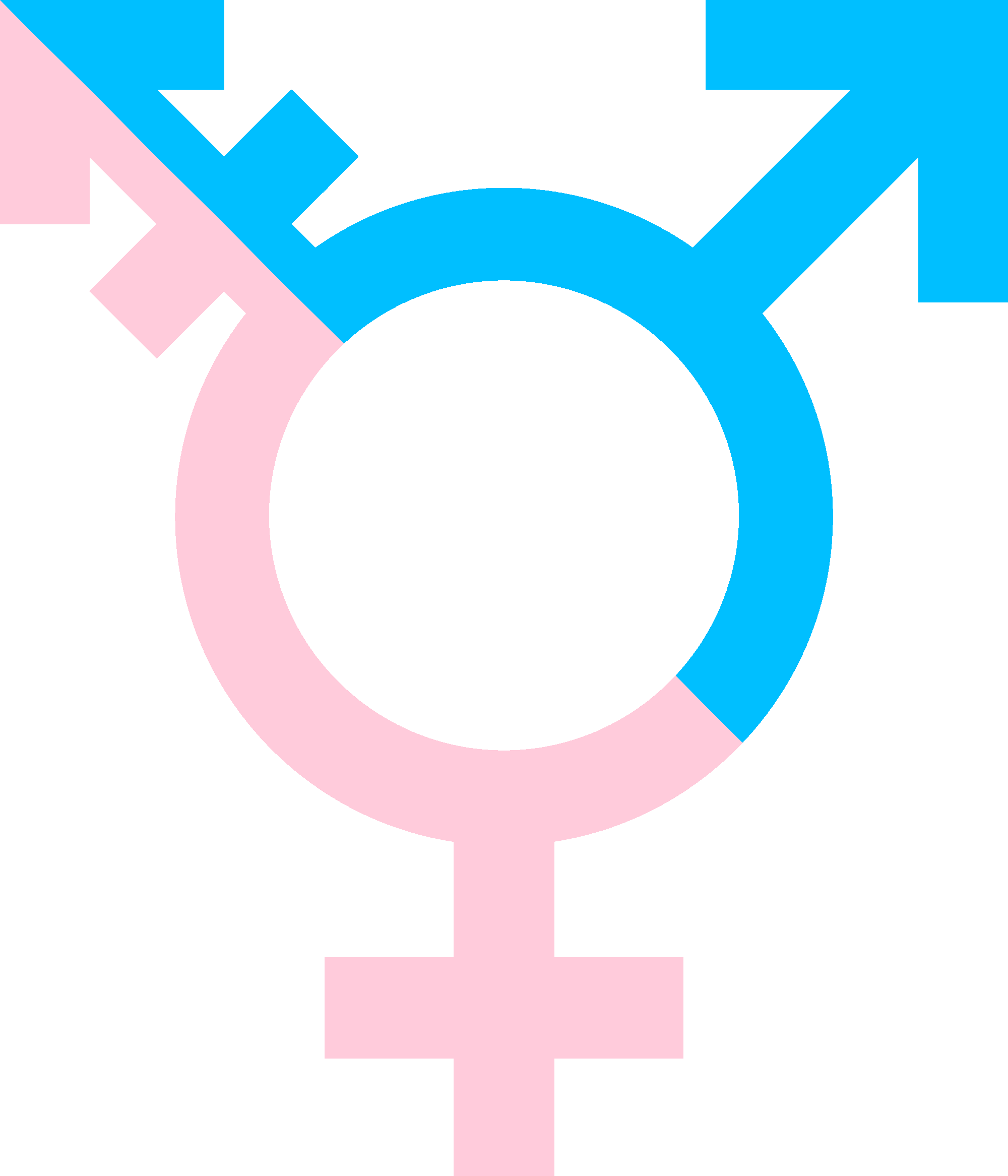
With recent discussions about psychological disorders, intersex and deviant behavior, Egyptians are not aware of the phenomenon of so-called sex reassignment surgery or Gender Identity Disorder (GID), the distress a person experiences with the gender they were born with.
There are those who accuse people experiencing these phenomena of simply being “perverts,” but the situation is in fact completely different. While the “pervert” does not resort to sex change operations, those who do are people born with an imbalance due to a hormonal disorder in the brain which afflicts the child before birth. With regards to intersex persons, these children are born with clear congenital defects, in which there is a reconciliation between the mind and the body, which makes an operation easy to perform.
Doctors assert that GID persons have the right to undergo transgender operations but the government refuses to legalize them. The phenomenon is also surrounded by social stigma and Egypt’s al-Azhar, the Sunni Muslim world’s most prominent religious institution, does not grant approval for patients to undergo these operations.
In a series of forthcoming articles published over separate days, Al-Masry Al-Youm, the sister Arabic-language publication of Egypt Independent, opens up the gender identity disorder subject to delve deep into the psychological suffering transponders usually go through, social rejection, medical perspective and Islam’s stance on gender identity.
Gender Reassignment Committee to resume work with Dar Al-Iftaa
Head of the Gender Reassignment Committee of Dar Al-Ifta ( [Egyptian state-run Islamic institution assigned to issue religious edicts] with the Egyptian Medical Syndicate Osama Abdel Hai said he has
.headed the committee for about four years
The committee’s work ceased after two years because the Dar Al-Iftaa representative objected to include his name in
.the committee despite not attending due to his work, Hai said
He added that most of the members of the committee worked on a part time basis. Approvals were granted by consensus, which became a problem.
Hai explained that an agreement was recently reached with the Director of the Office of the Grand Mufti of Egypt Magdy Ashour that the representative of Dar Al-Iftaa shall not attend, provided that each case is sent to the Dar Al-Iftaa representative for approval.
Hai warned against undergoing the procedure without the approval of the committee, because the approval entails procedures to direct the patient to the Justice Ministry and Civil Status Authority to issue a new ID card with the new identity.
He stressed that the procedure must be conducted in large government hospitals, after the approval of the committee, because the procedure without the approval of the committee makes the steps that come after the operation difficult for the patient.
Regarding the correct steps to take to undergo the procedure, Hai said that the patient has to submit his papers to the Egyptian Medical Syndicate, and then be subjected to tests and checkups, and then be checked by a doctor of urology and venerology.
The patient should then be checked by a psychiatrist, and has to be subjected to psychological treatment for at least two years without interruption, in order to coexist and reconcile the mind with the body, and try during the two years to live a normal life. If the brain do not adapt to the body then the procedure would be of benefit to the patient because most young people suffering from GID commits suicide, Hai said.
He added that it is not as easy as some may think, because the transgender person must take hormone therapy, in order to change the nature of the body and conform with his new identity, and then be rehabilitated to be able to conduct surgery to change the genitals.
Hai pointed out that studies have shown that the GID is an organic mental disorder and not only psychological, or educational or a defect in parenting during childhood. There is a disease in the organic part and psychological part of the body, and parents must take these things very seriously.
Sheikh Majdi Ashour, academic advisor to the Grand Mufti of Egypt, stressed that it is not possible to take the opinion of religion on this thorny issue in general, as each case has its own conditions which cannot be generalized to other cases.
“There is a big difference between patients with GID and patients of intersex. For example a girl with male genitals and vice versa; here the fatwa is easier because the disease is organic and very clear. But in GID, the disorder is more psychological than organic, as it is the tendencies and desires of a girl to be a man and vice versa. So opinions of specialists of andrology, psychiatry, and gynaecology must be heard first, and then after hearing the professor of religion, who can then begin to apply the jurisprudence and standards according to the opinions of all the above,” Ashour said.
“The conversion of sex is very serious, and can not be approved according to tendencies and desires only, and needs a committee of all the specialties that I mentioned. And indeed we had a member in the [Gender Reassignment] Committee of the Egyptian Medical Syndicate.The committee is currently stalled for more than a year because we withdrew the representative of Dar Al-Iftaa, and addressed the Grand Mufti to address the Health Ministry so that the committee be subordinate to it [Dar Al-Iftaa] to impose more discipline,” Ashour said.
In one episode of his “Humanity before Religiousness” program, Sheikh al-Habib Ali Al-Jifri stressed that the disease of GID is a type of affliction. He added that this disease has become an issue because it has become subject to a kind of guidance and organization through global pressure groups. He added that there is a need to clarify the correct treatment.
Jifri added that people, in dealing with GID patients, have become divided into two camps: one who says that it is about personal freedom and demands that it be legitimized and made available. The other camp demands that those people be killed and humiliated. However, both parties need to be corrected, according to Jifri.
“A patient with GID – we should all respect his humanity such as anyone who has an affliction like a disability. And he must seek treatment for himself and correct his physical condition if his problem is organic, or psychologically treated if his problem is psychological, and society must help him to overcome this situation,” Jifri said.
“It is wrong of the mother to treat her young son as a girl, so encourage him to dance like girls or allow him to put on makeup, or wear girls’ clothes. It negatively affects the psychological composition, and may lead to disruption of hormones, so he has more female hormones that cause a disturbance in his personality and disorder in his behavior and vice versa for the girl,” he said.
“Some people today try to legitimize homosexuality and copy it to our societies, and this is absolutely forbidden and one of the greatest sins, and enters into the category of those who love to spread obscenity. It is not humanism to accept copying homosexuality or perversion because this is contrary to the human nature created by God, and therefore the difference must be realized between a GID person and the pervertible sexual practices contrary to the nature that God created us,” Jifri said.




